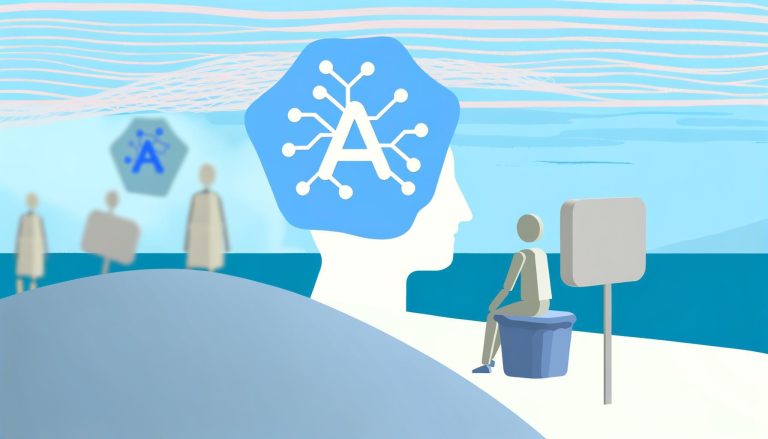Borderline Personality Disorder (BPD) is a complex mental health condition that can significantly impact teens and their families. It is characterized by emotional instability, difficulty maintaining relationships, and self-imposed harm or suicidal behaviors. Understanding and managing BPD in teens is paramount for their well-being and development. With the advancement in technology, AI support offers promising tools and resources for families, caregivers, and professionals to better understand and manage this disorder. This article explores the various AI support options available, their benefits, and how they can be used effectively.
Introduction to Borderline Personality Disorder in Teens
Borderline Personality Disorder (BPD) is often misunderstood, partly due to its complex nature and overlapping symptoms with other mental health disorders. Teens with BPD might experience intense mood swings, fear of abandonment, and impulsive behaviors. Early diagnosis and treatment are crucial in managing BPD and improving the quality of life for affected teens.
Understanding the Importance of Early Intervention
Research has shown that early intervention can significantly improve the prognosis for teens with BPD. Symptoms often emerge in adolescence, a critical period for emotional and psychological development. Therefore, recognizing the signs early and seeking appropriate help can make a significant difference.
AI Support Systems for Understanding BPD in Teens
AI technology has revolutionized mental health care, providing innovative solutions for understanding and managing BPD in teens. These AI support systems range from diagnostic tools to therapeutic aids, each offering unique benefits.
Diagnostic Tools
- AI-driven Diagnostic Apps: There are several AI-driven apps designed to help diagnose BPD. These apps use algorithms to analyze user responses, behavioral patterns, and symptom severity, providing a preliminary diagnosis that can be further evaluated by a professional.
- Machine Learning Algorithms: Machine learning algorithms can analyze large datasets to identify patterns and correlations that might not be immediately apparent to clinicians. This can help in early detection and personalized treatment planning.
Therapeutic Aids
- Chatbots: AI-powered chatbots offer support and guidance to teens with BPD by providing immediate responses and coping strategies for emotional distress. These chatbots are available 24/7, making them a valuable resource for moments of crisis.
- Virtual Reality (VR) Therapy: VR therapy uses simulations to provide therapeutic experiences in a controlled environment. Teens can learn and practice coping mechanisms in real-time scenarios, helping them manage their symptoms more effectively.
Monitoring and Tracking Tools
- Mood Tracking Apps: These apps allow teens to log their moods, thoughts, and behaviors. AI analyzes this data to identify patterns and triggers, providing insights that can help in managing BPD.
- Wearable Devices: Wearable devices equipped with sensors can monitor physiological indicators like heart rate and sleep patterns. AI processes this information to detect signs of emotional distress, enabling timely intervention.
Benefits of AI Support for Managing BPD in Teens
AI support systems offer several benefits, making them valuable tools in the management of BPD in teens. These benefits include improved accessibility, personalized care, and continuous monitoring.
Improved Accessibility
AI tools are accessible from anywhere, making support available at all times. This is particularly beneficial for teens in remote areas or those hesitant to seek traditional therapy.
Personalized Care
AI can tailor interventions based on individual needs and patterns, offering a personalized approach to managing BPD. This personalized care can enhance the effectiveness of treatment plans.
Continuous Monitoring and Feedback
AI tools provide continuous monitoring, allowing for real-time feedback and timely interventions. This continuous support helps manage symptoms more effectively and reduces the risk of crisis situations.
Practical Tips for Using AI Support Effectively
While AI tools offer significant benefits, it is essential to use them effectively to maximize their potential in managing BPD in teens. Here are some practical tips:
Integrate AI Tools with Professional Care
AI tools should complement, not replace, professional care. Use AI support systems in conjunction with therapy and medical consultations for a holistic approach.
Encourage Consistent Use
Encourage teens to consistently use AI tools for tracking moods, monitoring behaviors, and engaging with therapeutic aids. Consistency is key to obtaining accurate data and effective support.
Educate on Safe Use
Educate teens and caregivers on the safe use of AI tools. Ensure they understand the purpose of each tool, how to interpret data, and when to seek professional help.
Stay Updated with Technology
AI technology is continually evolving. Stay informed about new tools, updates, and best practices to make the most of the available resources.
Seek Feedback and Make Adjustments
Gather feedback from teens on their experience with AI tools. Use this feedback to make necessary adjustments and improve the support system.
Conclusion
AI support offers promising tools for understanding and managing Borderline Personality Disorder in teens. From diagnostic apps to therapeutic aids, these technologies provide accessible, personalized, and continuous support. However, it is essential to integrate these tools with professional care, encourage consistent use, educate users, stay updated, and seek feedback to maximize their effectiveness. By leveraging AI support, we can make significant strides in improving the well-being and development of teens with BPD.
For those looking to explore AI-powered tools, the Zenora App offers a suite of features designed to help individuals track their moods, set and achieve goals, and receive personalized insights based on their data. This can be a valuable resource for teens managing BPD and seeking to improve their mental health.





